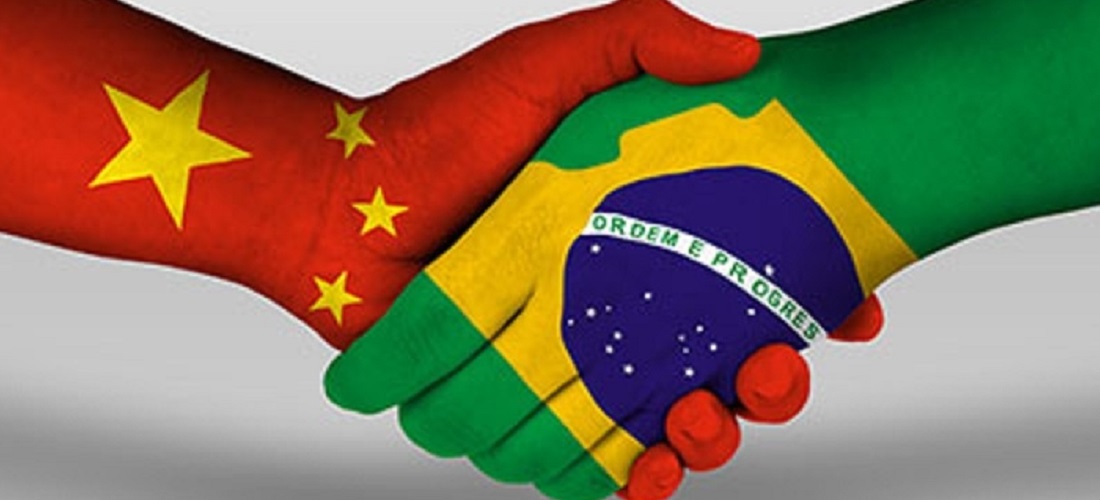
China and Brazil strike deal to use own currencies instead of dollar
Mar, 30, 2023 Posted by Gabriel MalheirosWeek 202316
China and Brazil have reached a deal to trade in their own currencies, ditching the US dollar as an intermediary, the Brazilian government said on Wednesday, March 29.
Reducing dependence on the dollar, and increasing the circulation of the yuan (RMB), is one of China’s foreign policy directives in the context of trade disputes with the United States. Recently, President Xi Jinping signed agreements with Saudi Arabia and Russia, allowing the use of the yuan in trade. The RMB has about 2% of participation in global payments, growing mainly around the Asian regional power.
At the end of January, the central banks of both countries signed a memorandum that established a “clearing house” in Brazil. In practical terms, the term refers to a bank chosen by the Chinese government – the ICBC – with liquidity in the Chinese currency to clear foreign exchange directly. There, businesses in Brazil can exchange yuan for the Brazilian currency.
According to a report released in November last year by the People’s Bank of China (PBC, the Chinese central bank), there were 27 “clearing houses” outside mainland China in 25 different countries and regions, such as Canada, Germany, the United Kingdom, France, Luxembourg, Switzerland, Qatar, Taiwan, South Korea, Singapore, and Australia at the end of 2021. In South America, Chile has a similar agreement, as does Argentina. Even the USA has a “clearing house” to directly exchange the currency, as indicated by the Chinese BC.
According to Tatiana Rosito, secretary of international affairs at the Ministry of Finance, more exchange rate predictability is crucial for traders and investors. She claims that one of the topics that Chinese traders in Brazil are most interested in discussing is taxes on exchange transactions and that local currency trade may help to increase bilateral exchanges. Last year, there was a $150 billion trade surplus between the two nations, and China made a total of US$ 70 billion in direct investments in Brazil.
On another front, the Brazilian Social Development Bank BNDES also plans to launch new financing lines for bilateral trade.
“These elements will reduce transaction costs for exchanges that involve the real and RMB, aiding in strengthening these relations,” said Tatiana.
‘First step’
The secretary, who represented the Ministry of Finance, told journalists that establishing ICBC as a clearing house is a “first step;” it is now another option for businesses, although the idea isn’t to make it mandatory. She said herself that clearing houses may be limited in their ability to serve traders at the moment. However, “it may interest many businessmen, especially when it will reduce transaction costs, whether with financing, foreign trade or investment.”
China’s Vice Minister of Commerce, Guo Tingting, also welcomed the new agreement. She said the countries are strategic partners and have an “exemplary” relationship.
An executive from one of the biggest meat producers in the country said the deal might be attractive if it gives access to lower-interest export financing lines in Chinese banks that do not involve the American currency. On the other hand, using dollars can benefit domestic agricultural exporters because, in addition to receiving payments in a more valuable currency and incurring expenses in the Brazilian real, it can lessen the effects of the so-called “Brazil cost.”
Cost reduction
The agreement may bring advantages to Brazilian exporters and importers, with low risk for Brazil, according to experts interviewed by Estadão.
In the view of Tulio Cariello, Content Director at the Brazil-China Business Council (CEBC), direct transactions would reduce financial costs since transferring payments from the Chinese currency to the dollar and then to the real, or vice versa, incur losses in exchange rates. Second, exchange rates for the yuan, which have greater control by the Chinese government, vary less, giving companies more predictability.
Welber Barral, a former secretary of foreign trade at the Ministry of Development, said that it “could be an alternative to lower the transaction cost by avoiding two steps of currency exchange” However, he emphasizes that using the agreement should not entirely replace the need for dollars when trading with China. This is because even though Brazil can trade directly using other currencies known as convertibles, like the euro, Swiss franc, and pound sterling, more than 90% of all current foreign trade transactions in Brazil are still conducted in dollars.
According to consultant Sérgio Quadros, director of SQ Asia Business Consulting, another advantage of direct transactions for Brazilian exporters is the possibility of opening markets in China. The Chinese government’s capital control policy rules limit local importers’ access to the dollar.
Source: Exame
To read the original text, please see: https://exame.com/economia/brasil-e-china-avancam-em-acordo-para-comercio-sem-o-uso-do-dolar/
-
Ports and Terminals
Aug, 19, 2021
0
TecPlata to link Port of Santa Fe to Brazil and Asia
-
Trade Regulations
Sep, 12, 2019
0
Trump postpones tariff increases on Chinese products
-
Sugar and Ethanol
Dec, 30, 2021
0
India protests WTO’s sugar dispute resolution
-
Grains
Jun, 06, 2022
0
Argentine agricultural exports reached a US$ 4,231 million record

